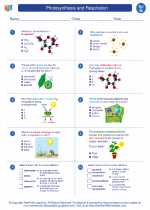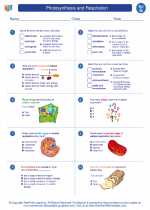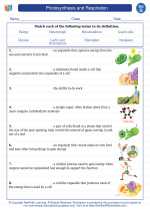Occupational Therapy
Occupational therapy is a healthcare profession that focuses on helping people with physical, sensory, or cognitive disabilities be as independent as possible in all areas of their lives. Occupational therapists work with individuals of all ages to help them participate in meaningful activities or occupations.
Roles of Occupational Therapists
- Evaluating a client's abilities and challenges in performing daily activities
- Developing individualized treatment plans to improve the client's ability to perform daily activities
- Assisting in modifying the environment to better support the client's needs
- Providing education and training to the client's family and caregivers
- Advocating for the client's rights and participation in society
Areas of Focus
Occupational therapists may work with individuals on a wide range of activities, including:
- Self-care tasks (dressing, bathing, grooming)
- Work and productive activities
- Leisure activities
- School-related activities
- Community participation
Education and Training
Occupational therapists typically hold a master's or doctoral degree in occupational therapy. They also must complete supervised clinical internships and pass a national certification exam to practice.
Study Guide
Here are some key topics to focus on when studying occupational therapy:
- History of Occupational Therapy: Understand the origins and evolution of the profession.
- Occupational Therapy Interventions: Learn about the different approaches and strategies used in occupational therapy to address various disabilities and challenges.
- Anatomy and Physiology: Gain a solid understanding of the human body and how it relates to occupational therapy interventions.
- Psychosocial Aspects of Disability: Explore the psychological and social impact of disability and how occupational therapy addresses these aspects.
- Ethics and Professional Standards: Familiarize yourself with the ethical guidelines and professional standards that occupational therapists must adhere to.
◂Science Worksheets and Study Guides Seventh Grade. Photosynthesis and Respiration
Worksheet/Answer key Photosynthesis and Respiration
Photosynthesis and Respiration  Worksheet/Answer key
Worksheet/Answer key Photosynthesis and Respiration
Photosynthesis and Respiration  Worksheet/Answer key
Worksheet/Answer key Photosynthesis and Respiration
Photosynthesis and Respiration  Vocabulary/Answer key
Vocabulary/Answer key Photosynthesis and Respiration
Photosynthesis and Respiration  Vocabulary/Answer key
Vocabulary/Answer key Photosynthesis and Respiration
Photosynthesis and Respiration  Vocabulary/Answer key
Vocabulary/Answer key Photosynthesis and Respiration
Photosynthesis and Respiration 

 Worksheet/Answer key
Worksheet/Answer key
 Worksheet/Answer key
Worksheet/Answer key
 Vocabulary/Answer key
Vocabulary/Answer key
 Vocabulary/Answer key
Vocabulary/Answer key
 Vocabulary/Answer key
Vocabulary/Answer key

The resources above cover the following skills:
LIFE SCIENCE
Ecosystems: Interactions, Energy, and Dynamics
Examine the cycling of matter between abiotic and biotic parts of ecosystems to explain the flow of energy and the conservation of matter.
Generate a scientific explanation based on evidence for the role of photosynthesis and cellular respiration in the cycling of matter and flow of energy into and out of organisms.